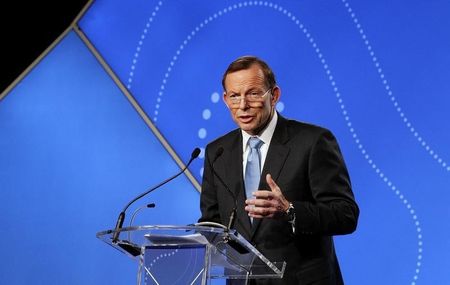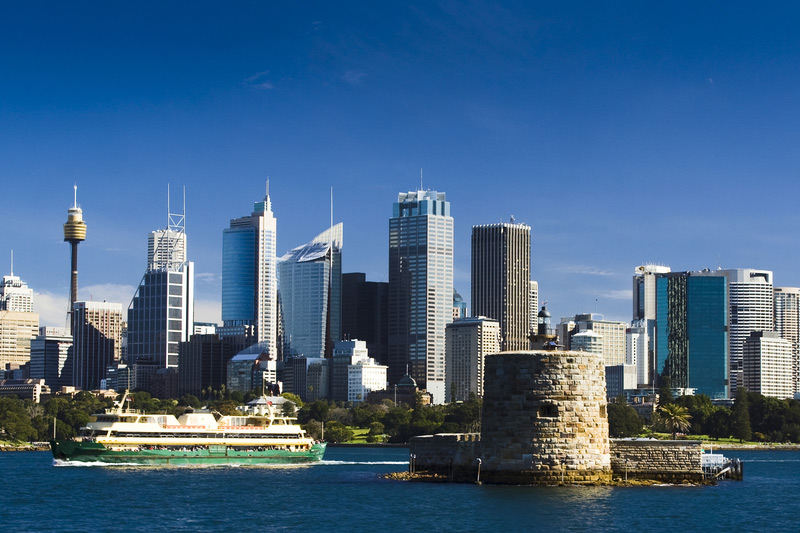By Jane Wardell SYDNEY (Reuters) - Australian Prime Minister Tony Abbott signalled on Monday he is open to compromises with opposition lawmakers on his unpopular budget, a major concession to help push the austere savings plan through a hostile Senate.
Three months since handing down its first budget, Abbott's conservative government has failed to win enough support in parliament's upper house for measures such as increased medical fees and cuts to family welfare payments.
The Liberal-National coalition government argues that the tough budget, which prompted public protests in May, will overcome unsustainable deficits totalling A$60 billion (33 billion pounds) over the next four years.
Critics say it is unnecessarily draconian, noting that Australia's AAA-rated debt pales in comparison to most developed nations and the savings measures might actually damage the economy.
Abbott for the first time opened up the possibility of "adjustments" to the plan, although he provided no detail and stressed he would stick to the budget's "fundamentals".
"You have to deal with the parliament that you've got and that's what the government is doing," Abbott said. "We're prepared to talk to the crossbench senators."
Abbott's Trade Minister Andrew Robb warned that a senate block of major reforms would worry foreign investors.
"If the current Senate continues as it has, it will affect the perception of sovereign risk in Australia," Robb told The Australian newspaper.
Mining magnate Clive Palmer, whose neophyte Palmer United Party (PUP) holds the balance of power in the upper house, has vowed to block the budget in its current form.
Palmer has already held the new Senate hostage this year, delaying the government's repeal of Australia's controversial carbon tax for weeks as he haggled for concessions.
"The budget is very unfair, it's unfair to all the people in this country, it robs our children of their future, it's not something we can support," Palmer said.
Palmer opened up a new front on government policy, calling on Abbott to close Australia's controversial immigration detention centres instead of introducing a new fee to see a doctor under the Medicare universal healthcare system.
Health Minister Peter Dutton has indicated possible exemptions to the introduction of the A$7 ($6.50) fee for every visit to a general practitioner, saying talks with crossbenchers have been "productive".
Other controversial measures include an increase in fuel excise and cuts to university funding.
TOUGH SELL
Australia has fared better than most developed nations in the past decade, having avoided the implosions of the finance and housing sectors suffered by the United States and Europe, while Chinese demand for resources fuelled a boom in exports.
But the government, which swept to power last September on a pro-business platform of budget reform and the abolition of a tax on carbon emissions, argues that the benefits of 22 years of unbroken economic growth have been squandered on a bloated bureaucracy rather than investing in badly needed infrastructure.
Poll results show the government's popularity sliding since the May budget announcement, while a number of gaffes by ministers have undermined its attempts to sell the controversial package.
Treasurer Joe Hockey apologised on Friday for saying that the planned fuel excise increase would not affect poor people much because they do not drive cars or drive very far, prompting widepread ridicule and condemnation.
Abbott had previously raised the prospect of a dissolution of parliament and fresh elections if the budget was blocked, but has not threatened that measure since his slide in the polls.

(Editing by Eric Meijer)
